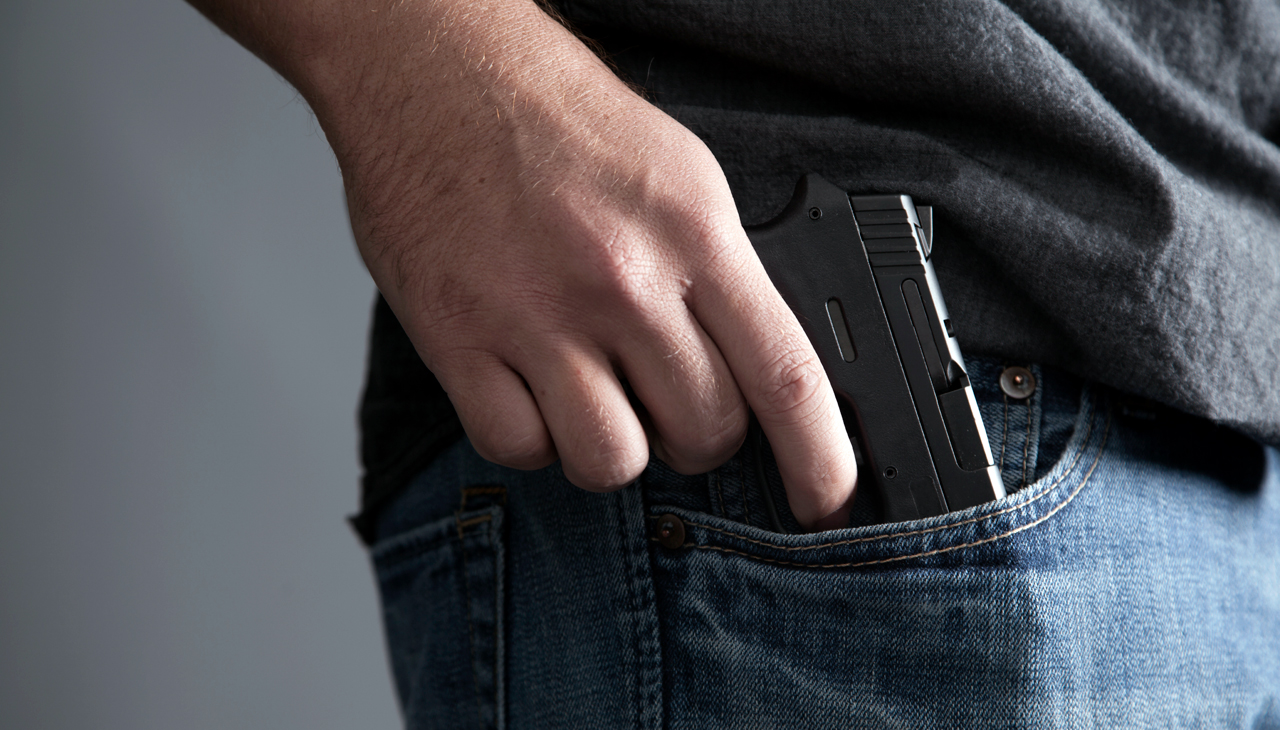
It’s the guns, America | OP-ED
MORE IN THIS SECTION
At the end of last year, I helped my colleague Kianni Figuereo interview a number of Philadelphia youth between the ages of 13 and 18 about the city’s current gun violence crisis, which left a staggering 562 people killed in the calendar year of 2021.
This year, the city’s numbers are behind where they were at this point last year, but still well ahead of any point recorded in any year before 2021.
In the conversations with the teenagers, a common question asked was how people get the guns to commit the violence.
Ricardo, an 18-year-old from Kensington, put it best.
“Guns get around in Philly,” he said. “It’s just easy. You gotta know somebody. You gotta know somebody that know somebody.”
Marquis, a 17-year-old from North Philly, said it also didn’t matter how old the prospective purchaser of the gun was.
“As long as you got a gat to trade or you got some bread, they don’t care,” he said.
But as the conversations progressed around accessibility, a question arose around if guns were accessible at all. Would there be as many shootings?
“It wouldn’t because it’d be harder to get them,” said Swervo, an 18-year-old from West Philly. “People our age, you know, we’re really not supposed to have them. So if we didn’t have access to get them it wouldn’t be that many killings.”
Now, Swervo was speaking about the gun violence in Philadelphia, but his answer regarding gun accessibility can be applied to the way the entire U.S. legislates on guns, especially considering the recent tragedy to hit Robb Elementary School in Uvalde, Texas.
There, on May 24, 2022, a gunman armed with an assault rifle stormed the school and killed 21 people, including 19 children between the ages of seven and 10, and two teachers.
In the same year of the 10-year anniversary of the Sandy Hook massacre, the tragedy in Uvalde was the worst of reminders that absolutely nothing has changed regarding gun legislation since a gunman entered an elementary school in Newtown, Connecticut and killed 26 people, including 20 children, all either six or seven years old.
Adam Lanza committed the 2012 massacre at Sandy Hook with a Bushmaster XM-15, an AR-15-style firearm, which was legally purchased by his mother (who he killed with it). He was allowed to carry a rifle or long gun like it, but not a handgun according to Connecticut law at the time.
In Uvalde, the shooter was 18-year-old Salvador Ramos, who legally purchased two AR-15-style guns and 375 rounds of ammunition from a local federal firearms licensee a week before the shooting. Like in Lanza’s case, Texas law allows for 18-year-olds to own rifles or long guns like an AR-15, but bans handguns until 21.
Texas State Senator Ronald Gutierrez told CNN that the rifles were purchased — one on May 17 and another on May 20 — for Ramos’ 18th birthday.
“It’s the first thing he did when he turned 18,” Gutierrez said, citing a briefing from Texas Rangers.
“It’s the first thing he did when he turned 18,” Gutierrez said, citing a briefing from Texas Rangers.
As an enraged citizen who’s seen tragedies like this happen more times in my life than I can even remember as a 25-year-old: How does this keep happening?
Mass shootings of this nature are a distinctly American problem, and they’re not because our teachers aren’t armed or doors aren’t locked at our schools. They happen because guns are more easily available here than anywhere else in the world, including warzones.
In New Zealand, it took less than a month after the Christchurch Massacre, which left 51 people dead at two mosques, to ban assault style weapons and magazines by law and initiate a national buyback program. In the U.K., following the Dunblane Massacre that saw 16 kids and one teacher murdered in Scotland, two firearm bans were implemented in the next year. There haven’t been mass shootings of the level of any that have happened in the U.S. in the last two weeks since in either country.
Even the U.S. is capable of such regulations. Following the Oklahoma City bombing, large quantities of fertilizer (which were used to make the bomb that blew up the Alfred P. Murrah Federal Building, killing 168 people) could no longer be purchased without providing identification.
Assault rifle bans also do exist in some states, but to truly combat this distinctly American problem, there must be a federal law.








LEAVE A COMMENT:
Join the discussion! Leave a comment.